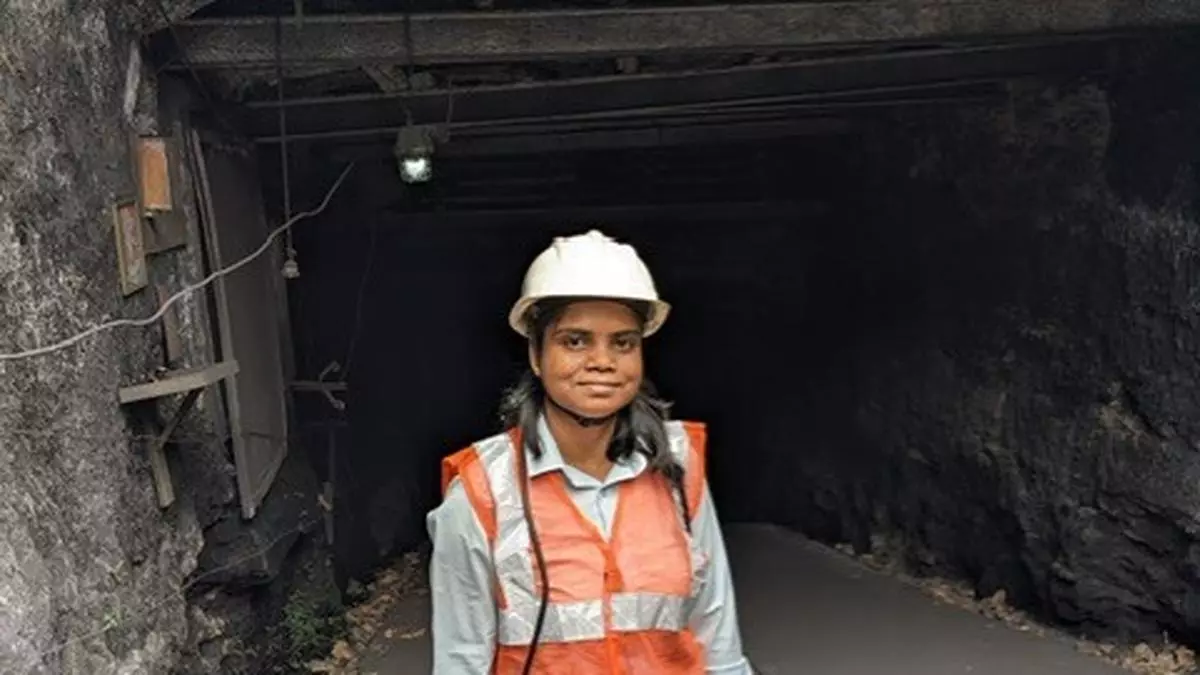Growing up in a mining area in Jharkhand, Akanksha Kumari remembers being fascinated by the constant mentions of 'roof fall' and 'roof crash' that caused panic and fear wherever she went. She never imagined that she would experience first hand what these dreaded words meant when she began her career as India's first woman mining engineer.
Since her recruitment by Coal India Ltd (CIL) in 2021, only three other women have entered the mining public service.
So what motivated her to embark on this career path, which literally involved storming a male-dominated city?
“I come from an area known for coal mining, and the locals don't work for a coal mining company, but they are still involved in mining. In the school dormitory, I often heard my friends talking about 'roof collapses' and I wondered how and why this could happen. I didn't understand it at the time, but now I know the significance,” she says in an interview with Business area.
Social pressure
After completing Grade 10, she was in a dilemma about what to do next. “I was very good at sports and also participated in national-level athletics competitions, so the discussion was whether I should pursue sports or an academic career,” she recalls.
The academic career won out because getting a job was her priority, she says. After 12th grade, she had to think about different paths again. “The vote was for computers and IT, but that wasn't an area that interested me. Software wasn't for me,” she says.
Rather, her heart was set on the challenges and excitement of the mining world. While it wasn't too difficult to convince her father, who is a teacher, and her mother, who works in Anganwadi, her hurdles were more social in nature.
“My father spoke to a friend who worked for a mining company and he said mining was not a suitable field for girls. If you come from a middle-class family, you can understand the pressure that comes with it,” she says.
But she continued, only to face the next hurdle… at the counselling level for admission to an engineering course. “The counsellor was not ready to give me mining engineering. But arguments and persuasion worked. In 2018, I graduated with a BTech from BIT Sindri, Dhanbad, Jharkhand,” she says.
Challenges in the workplace
However, she soon discovered that the real challenges were yet to come. “When it came time for the mandatory vocational training, which included training in an underground mine, the company's General Manager (Human Resources) told me, 'Who sent you here? Doesn't your department head know that we don't have facilities (accommodation) for women?' I eventually got a room in the guest house, but was told that I could not stay alone as I was the only girl in the group. My aunt and mother took turns staying with me while I did my training,” she says.
After completing her studies, she was first employed by Hindustan Zinc, where she worked in the mines for three years. She then worked in the coal mines of the Churi Colliery of Central Coalfields Ltd, a subsidiary of CIL.
Apart from the drudgery she has to endure working in the underground mines for a maximum of six hours, the biggest challenge she faces as a woman is the lack of basic amenities, forcing her to adapt to existing conditions suitable for male workers.
Having opened the doors to the mining world for other young women like her, she has one piece of advice for them: “It's not easy. It's a decision you make. Come prepared and when you're ready, go for it.”

“Incurable gamer. Infuriatingly humble coffee specialist. Professional music advocate.”







